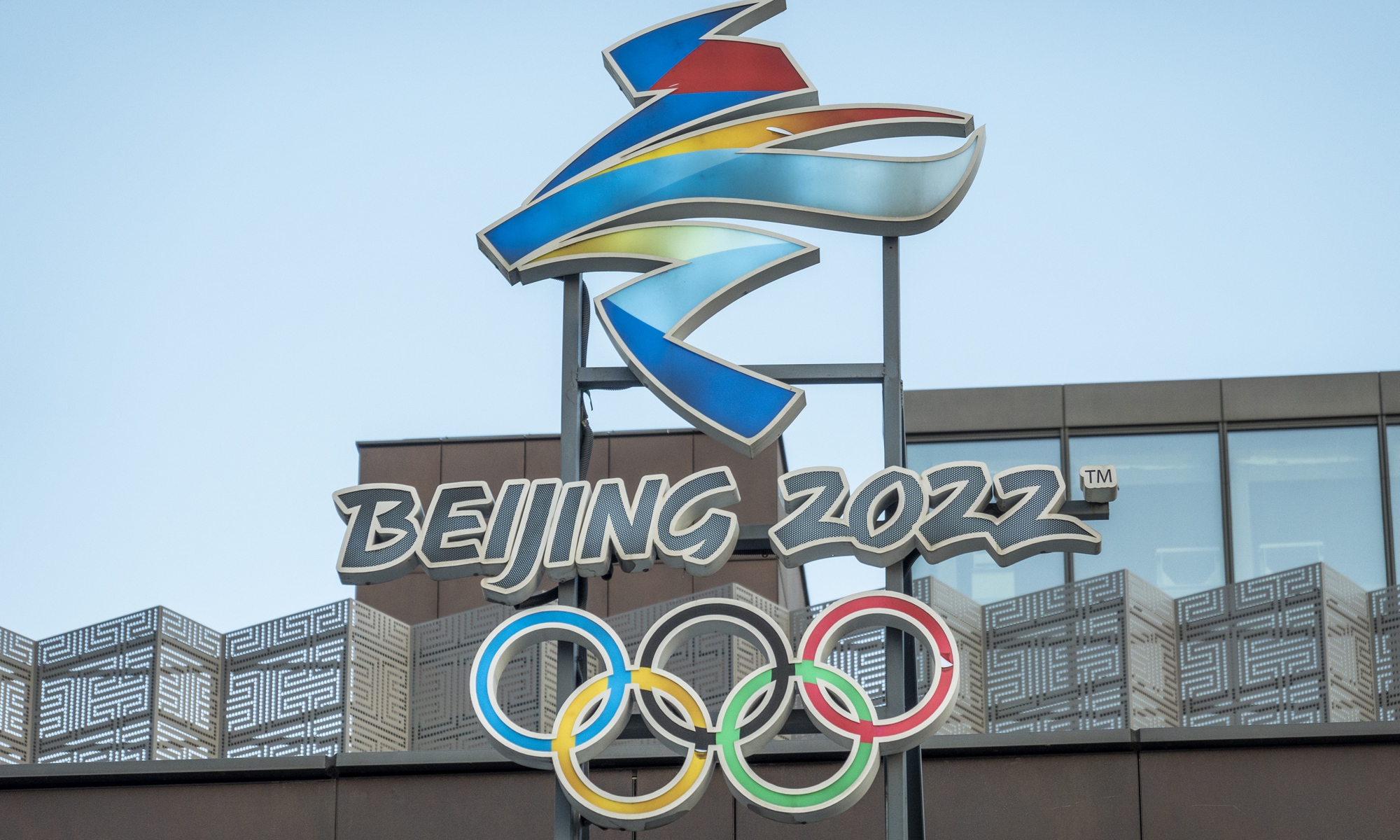Winter Games find China as a settled, responsible, increasingly successful middle-aged adult:US scholar

Beijing 2022 Photo:VCG
The Beijing Summer Olympic Games held 14 years ago were widely considered as China's coming-of-age ceremony. Next week, Beijing will become the first city to host both Summer and Winter Olympics. What do the Winter Olympic Games mean to China especially when they're held in the most trying of circumstances given the raging pandemic and US' call for "a diplomatic boycott"? Why is US' attempt to sabotage the Games doomed to fail? Global Times (GT) reporters Yu Jincui and Lu Yuanzhi interviewed Sourabh Gupta (Gupta), a senior fellow at the Washington-based Institute for China-America Studies, over these issues via email.
GT: Against the backdrop of a raging pandemic and slowing global economic recovery, what're your expectations for the upcoming Beijing 2022 Winter Olympic Games? In front of the attacks and slanders from the West, China firmly promised that it would present a streamlined, safe and splendid event for the world. What do you think this reflects?
Gupta: I have not the least doubt that China will pull off a safe and splendid Winter Olympics. 21st century China is a results-driven state. It exudes resolve and purpose. Once China sets its mind to a difficult but achievable task, it does not shrink from persevering and bringing matters to the responsible and logical conclusion. The Winter Games are taking place in the most trying of circumstances. The highly transmissible Omicron variant has played havoc with travel and work schedules (not to forget human life), much more so than the Delta variant at the time of the Tokyo Summer Games. Yet, as the city of Tianjin has recently shown, even Omicron has met its match in the form of the Chinese state machinery. It was snuffed out within a two-week period, and that too without instituting a citywide lockdown order. Once the final medal count is announced on February 20, one of the other big winners of the 2022 Winter Games will be China's "dynamic clearing" policy.
GT: The US has proposed a "diplomatic boycott" of the Beijing 2022 Winter Olympics, but only a few countries have actually responded and taken actions. What are your thoughts on this situation?
Gupta: The US' "diplomatic boycott" was as uncalled for as it has been a failure. At last count, a mere half dozen or so countries have joined the boycott. And they are the "usual suspects" — the Anglo-Americans and the Baltic nations, for the most part. If anything, these countries have only reconfirmed their places on the shortlist of China-baiters that would prefer to see China fail. The failure of the "diplomatic boycott" is not unsurprising. It was an effort to have it both ways — to make a polarizing political statement but at not too high a price for oneself. And that is also the reason that the smear campaign will continue in a variety of forms over the next three weeks. Come February 4th, Anglo-American television audiences will be fed a steady diet of China's ills, starting with the imagined "genocide" in Xinjiang. Yet once the Winter Games are long past, audiences won't be able to distinguish Xinjiang from Xankandi (in Azerbaijan) and will only faintly remember the (by then disproven) smear that "genocide" was supposedly committed there - just as nobody remembers today (correctly) the disproven smear at the time of the Beijing Summer Games that China was supposedly re-engineering Tibet demographically to impose an assimilationist Han Chinese majority there.
GT: The Olympics are originally intended for the purpose of world peace, but now the Olympic Games are highly politicized if held in a country considered hostile by the US, with sponsors under its pressure and the IOC, even athletes, asked to take a stand on certain issues. What do you think about this trend?
Gupta: The politicization of sport is an unfortunate fact of life. It is disappointing to see nonetheless the extent to which some countries are willing to go to implicate politics negatively with sport to score cheap talking points. The hope was that the language of boycotts by major countries had forever been extinguished from the Olympic Movement. This has unfortunately not turned out to be the case and might even get worse in the years ahead. I'm afraid the next target will be the umpires and referees at the Games. Overall, though, I wouldn't worry too much about the Olympic Movement or for sport. Unlike politics, sport unites rather than divides us as humans. From the moment the Olympic flame is lit, sport will more or less overwhelm the politics. And so long as politics facilitates tolerance and unity, it can have a cherished position within sporting endeavors; to the extent it foments division, it needs to be handed a red card and sent packing.
GT: The 2008 Beijing Olympic Games were widely considered as China's coming-of-age ceremony. What do you think about the special significance of the 2022 Winter Olympics to China? How has China's status and role on the international stage changed over the past 14 years?
Gupta: The Beijing Summer Games were indeed China's coming-of-age ceremony. Fourteen years later, the Winter Games find China as a settled, responsible, and increasingly successful middle-aged adult, but one nevertheless facing a number of steep challenges in this and the next phase of life ahead. These challenges cannot all be tackled in isolation by China. Successfully tackling them will require China to deepen its integration with the outside world, as much as it requires the outside world to gain a better appreciation of China.
And this appreciation is best done not just by taking the China success story abroad but by inviting the world into China's living room, as it were, to witness the habits and ingredients of China's success. This next phase of internationalism requires a "Welcoming In" strategy on China's part — a broader engagement with the world at the societal level to better appreciate the outside world as well as to understand the contributions that China can make to global society. This will require less control over information and greater exposure to global perceptions of China, including negative ones. China also needs to guard against overly nationalistic tendencies borne of premature overconfidence. China has blazed a trail over the past 40 years, but it is not fated or inevitable that the next 30 years will be as successful. China must stay humble. A mix of nationalism, hubris and under-capability can be toxic, especially at a time when a wider set of global friendships to tackle challenges at home and abroad is essential for China's betterment.

